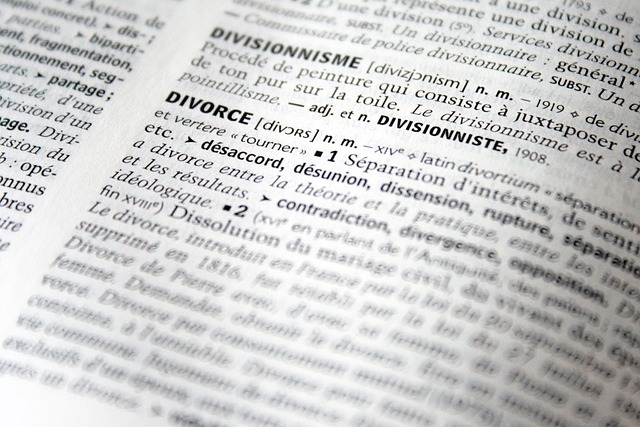Antitrust violation cases stem from agreements or practices that restrict competition, such as price-fixing, market division, and exclusive dealing, with co-ownership property being a key term in defining disputes. Resolution options include civil lawsuits, criminal prosecutions, and administrative actions, impacting corporations (often requiring structural remedies) and individuals (facing personal liability). Co-ownership property disputes often arise from sour partnerships, prompting complex legal issues that require understanding of available legal options like mediation or litigation. Seeking counsel from experienced attorneys is crucial for rights protection and strategic decision-making. Strategic approaches like co-ownership property dispute negotiations aim to achieve just resolutions, fostering market competitiveness by breaking up monopolies. For high-stakes cases, leveraging tailored legal options under various antitrust laws across countries ensures the best outcomes, with specialized attorneys navigating complex landscapes to reinforce antitrust principles throughout industries.
“Antitrust violation cases: Unraveling Complexities and Exploring Solutions delves into the intricate world of corporate competition and its potential pitfalls. This article guides readers through the understanding of antitrust laws, their definitions, and the dynamics behind violations. We explore critical scenarios, particularly co-ownership property disputes, offering legal options for resolution. Furthermore, it presents strategic approaches to navigating these cases, ensuring fairness and compliance. For businesses facing co-ownership property disputes, discovering suitable legal options is essential, making this a valuable resource.”
- Understanding Antitrust Violation Cases: Key Definitions and Dynamics
- Co-Ownership Property Disputes: Navigating Legal Options
- Strategic Approaches for Resolving Antitrust Violation Cases
Understanding Antitrust Violation Cases: Key Definitions and Dynamics

Antitrust violation cases center around the misuse of market power, often through agreements or practices that restrict competition. At the heart of these disputes lie key definitions like co-ownership property and anti-competitive behavior. When companies or individuals engage in such conduct, it can distort markets, limiting consumer choice and driving up prices. These cases span all stages of the investigative and enforcement process, from initial complaints to trials and appeals, involving complex legal arguments and strategic negotiations.
Understanding the dynamics requires grasping how these violations manifest—be it through price-fixing agreements, market division strategies, or exclusive dealing contracts that tie customers to specific providers. The legal options for resolving such cases include civil lawsuits, criminal prosecutions, and administrative actions by antitrust authorities. Both corporate and individual clients can face consequences, with the former often facing structural remedies to address the harm caused while the latter may incur personal liability for their roles in the violations.
Co-Ownership Property Disputes: Navigating Legal Options

Co-ownership property disputes can arise from a variety of situations, often involving complex legal issues that require careful navigation. When partners in a business or property venture find themselves at odds, it’s not uncommon for legal action to ensue. In such cases, understanding the available legal options is crucial for achieving extraordinary results.
One avenue to explore is mediation, a process that encourages open communication and collaboration between co-owners, aiming to reach a mutually agreeable solution. Alternatively, litigation may be pursued in court, where a judge or jury decides on an outcome based on the presented evidence and arguments. This route can be lengthy and costly but may be necessary when significant stakes are involved. Moreover, seeking legal counsel from experienced attorneys who specialize in co-ownership property disputes is essential for understanding one’s rights and the best strategy to defend or pursue claims, ensuring that philanthropic and political communities benefit from fair and just resolutions.
Strategic Approaches for Resolving Antitrust Violation Cases

In addressing antitrust violation cases, strategic approaches are pivotal to achieving just and effective resolutions. One prominent method involves co-ownership property dispute negotiations, where parties collaborate to restructure agreements that breach antitrust laws. This approach not only facilitates compliance with regulatory requirements but also fosters a more competitive market environment. By breaking up monopolies or reducing market power, co-ownership disputes can open up opportunities for new entrants and enhance consumer choice.
For high-stakes cases, leveraging legal options tailored to the specific violations is crucial. Antitrust laws vary across the country, but common themes include promoting fair competition, preventing price fixing, and discouraging the formation of cartels. Attorneys specializing in antitrust law play a vital role in guiding clients through these complex legal landscapes, ensuring they secure the best possible outcomes for their clients. This strategic navigation not only protects the interests of individuals and businesses involved but also sends a strong message across industries about the importance of upholding antitrust principles.
Antitrust violation cases, encompassing complex issues like co-ownership property disputes, require a nuanced approach. Understanding the dynamics and defining key terms is essential for navigating these legal quagmires. While strategic resolutions are paramount, considering diverse options—from mediation to litigation—ensures fair outcomes for all parties involved. By exploring both legal and alternative avenues, stakeholders can resolve co-ownership property disputes, fostering a more transparent and competitive business environment.






